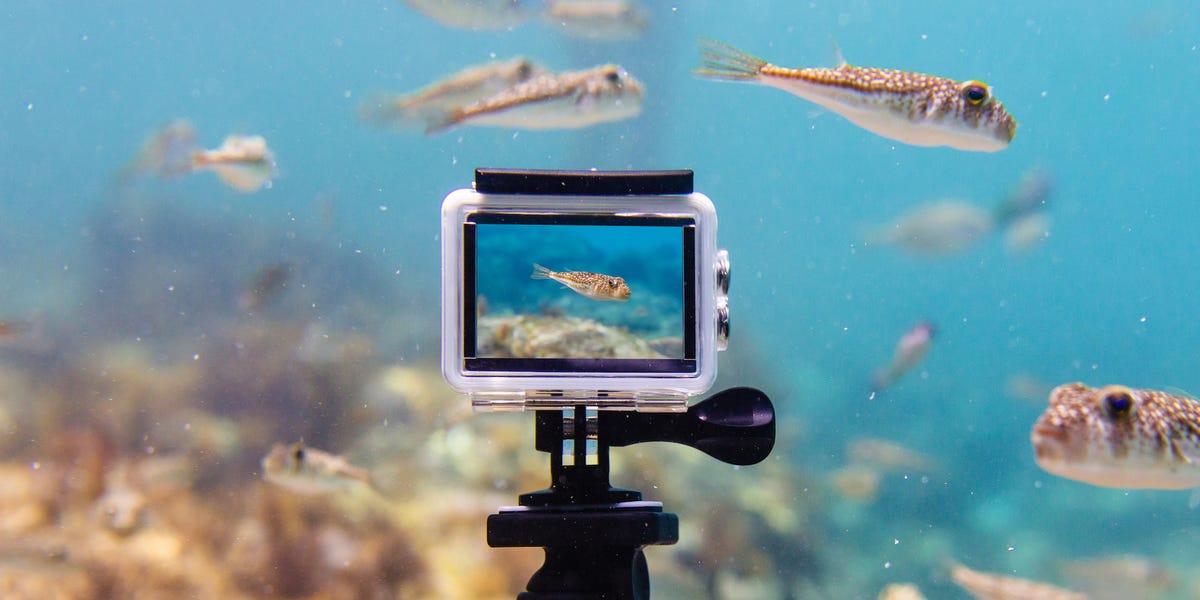- Companies are using AI tools and software to make the ocean cleaner and safer for aquatic wildlife.
- This includes tech that helps keep plastic out of the ocean and restore coral reefs.
- This article is part of “Build IT,” a series about digital tech and innovation trends that are disrupting industries.
Marine plastic pollution is one of the most troubling environmental issues. According to the International Union for Conservation of Nature, about 14 million metric tons of plastic enter the ocean annually, accounting for 80% of ocean debris.
CleanHub, a Berlin startup, is tackling this environmental crisis with artificial intelligence. The company, founded in 2019 by the entrepreneur Joel Tasche, has developed an AI-powered platform that allows local waste-management services to collect and properly dispose of nonrecyclable plastic.
Tasche and his team set up their services in coastal areas in Asia and Africa, partnering with local organizations that manage waste collection and provide jobs for communities. “Unlike alternative approaches that focus on recovering plastic once it’s already in the ocean, CleanHub prevents it from getting there in the first place,” Tasche told Business Insider.
How CleanHub uses AI to protect the ocean from plastic
Tasche said CleanHub was building a scalable solution to a global issue through transparency.
It uses an AI-powered track-and-trace system on a mobile app where users can take a photo of their bags of nonrecyclable plastics and arrange a pickup.
The plastic is gathered by local waste-management workers who scan a QR code that registers the pickup as completed. App users can then track the status and movement of the pickup on a dashboard showing when the plastics have been sorted and converted into energy fuel via incineration. This audit trail, Tasche said, “provides digital evidence” of plastic that doesn’t end up in the ocean.
CleanHub
Since launching five years ago, CleanHub has collected more than 8 million kilograms of plastic waste and serviced 225,000 households, Tasche told BI.
He said partnering with 300 global brands had been important to CleanHub’s success. “A third of the brands we partner with are already plastic-packaging-free,” he added. The company said it hoped to double the number of brands it supported last year and the amount of plastic it collected.
One environmental brand that CleanHub worked with is Green Worms, which aims to reduce global waste through the creation of a circular economy that reuses resources effectively. Its founder and CEO, Jabir Karat, said CleanHub’s technology provided “transparency and traceability,” eliminating the need for manually tracking plastic-waste collection.
Challenges remain
Harnessing AI for sustainability goals hasn’t been a simple process.
Tasche said that “the two challenges we need to manage” were scaling its AI tech to generate more in-depth, high-quality data and keeping the app user-friendly, especially for waste-management workers on the field.
Adhering to different waste-collection methods and industry standards on a global scale is another challenge.
“While the waste-management process typically involves collection, sorting, and treatment, the methods of collection vary from country to country,” Tasche said. “Addressing all use cases while adhering to our data requirements presents a challenge. On top of that, the data may not be immediately valuable to the app user but is crucial for the operations manager.”
Tasche told BI resolving these complications was a must to widen CleanHub’s reach and improve recycling rates.
“The lack of affordable, quality plastic feedstock is the main reason for the low recycling rates,” he said. “By expanding our network of waste collection globally, we can provide our brand partners with transparent supply chains for fairly sourced recyclable plastic feedstock.”
Other companies using AI to help the ocean
CleanHub’s AI-driven approach to sustainability reflects a larger trend as other companies use the tech for environmental initiatives.
Raed Albasseet, the group chief environment and sustainability officer of Red Sea Global, said the organization was using AI in multiple efforts to improve ocean health. This includes the restoration of coral reefs, which are quickly declining because of factors such as overfishing and the climate crisis.
Albasseet said AI and other tech tools could help predict coral reefs’ growth rates, health, and recovery in a way that traditional methods couldn’t. This includes tools such as CoralNet, which uses automation to estimate coral cover, or sections of reefs populated by corals, and TagLab, AI software that analyzes large-area images to evaluate coral growth, mortality, and reproduction rates. “This approach saves time in identifying situations that require intervention, for instance, by outplanting corals to improve coral coverage in a given place,” Albasseet said.
Additionally, he added, AI can be used to track coral health and recovery by analyzing different acoustic measurements, “a substantial improvement over conventional visual surveys.”
This process involves examining auditory factors such as coral reefs’ soundscapes, which provide insights into an area’s biodiversity and organisms’ activity patterns, and biomass-estimation audio, which captures sounds like mating, feeding, or territorial behavior to track reef populations.
Cognizant Ocean, a business group under the information-technology consultancy Cognizant, is also using AI to reduce the carbon footprint of the aquaculture and fish-farming industry.
Using underwater cameras and sensors with machine learning and AI, the organization helps farmers understand their fish’s behaviors and eating habits. Stig Martin Fiskå, the head of Cognizant Ocean, told BI providing this data allowed farmers to fine-tune their feeding schedules with greater precision of when to feed their fish and how much food to give them. This can reduce wasted feed, “a significant carbon-emissions source,” he added.
Fiskå said farmers could also analyze Cognizant Ocean’s data on “fish populations, fishing patterns, environmental conditions, and overall fish welfare” to improve production planning, reduce costs, and, perhaps most importantly, contribute to oceanic sustainability.




